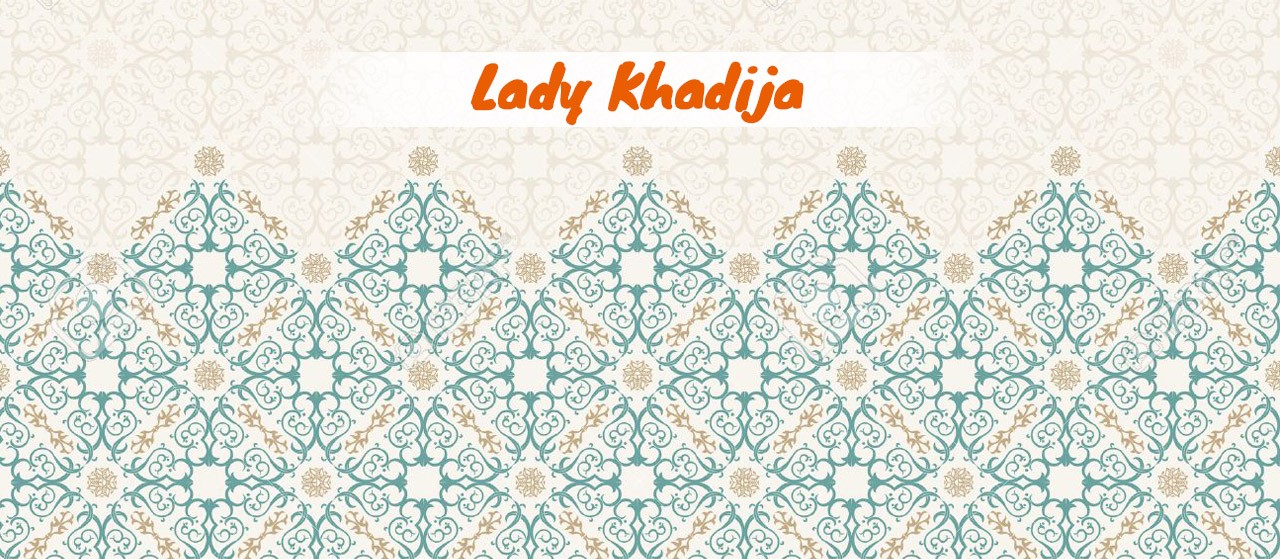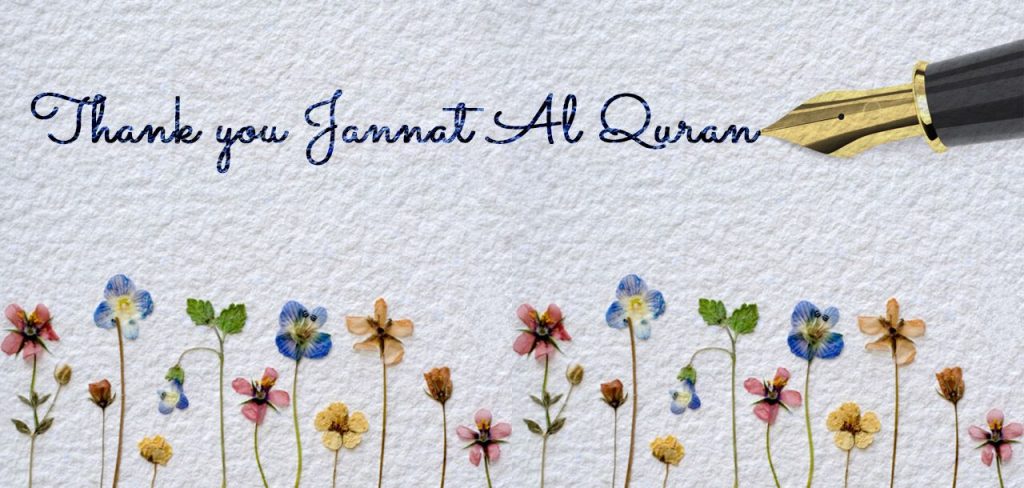Lady Khadija
lady khadija, may Allah be pleased with her, was one of the history’s most remarkable women. Prophet Muhammad once said that the four greatest women of mankind were: Khadija bint Khuwaylid, Fatima bint Muhammad (his youngest daughter,) Mary bint Emran (the Virgin Mary) and Asiya bint Muzahim (the wife of Pharaoh.) The Lady Khadija continues to inspire people to this day who revere her for taking great care of the Prophet of Islam and for showing the world, through her behavior, what a pious, modest and courageous woman can accomplish. The example she left for mankind remains timeless.
According to a number of sources, Lady Khadijah was born in 556 A.D. and died 3 years before the Hijra (migration of the Holy Prophet and his followers from Mecca to Medina). Lady Khadijah’s father belonged to the Abd al-`Uzza clan of the tribe of Quraish. Like many other Quraishis, he was a merchant, a successful businessman whose vast wealth and business talents were inherited by the Lady Khadijah and whom the latter succeeded in faring with the family’s vast wealth. It is said that when Quraish’s trade caravans gathered to embark upon, their lengthy and arduous journey either to Syria during the summer or to Yemen during the winter, Khadijah’s caravan equaled the caravans of all other traders of Quraish put together.
By 585 A.D., Lady Khadijah was left an orphan. Despite that, and after having married twice, she had no mind to marry a third time though she was sought for marriage by many honorable and highly respected men of the Arabian peninsula throughout which she was quite famous due to her business dealings.
She employed the Prophet Muhammad, PBUH, when he was in his early 20s to manage a caravan to Syria and subsequently offered him marriage. She was about 40 years old with children from her previous marriages and the Prophet Muhammad, PBUH, was about 25. She bore him six children. Lady Khadijah and the Prophet Muhammad did not have any sons who survived childhood. They had four daughters: Umm Kulthum, Ruqayyah, Zaynab, and Faṭimah. Holy prophet, Muhammad did not take another wife as long as Lady Khadija lived. He loved no one more than Khadija during his lifetime.
The Prophet Muhammad’s prophethood began during his marriage to the Lady Khadija, when he received the first of Allah’s revelations through the Angel Gabriel that left him frightened, strained and feeling alone when no one believed in him. The Lady Khadija comforted her husband and encouraged him during the most difficult days of his life. The Lady Khadijah provided instrumental support in the Prophet Muhammad’s early prophethood. Her wealth allowed him the leisure to meditate, and she reassured him of the authenticity of his first revelations. She is thus often considered the first person to have believed in the Prophet Muhammad’s message. Moreover, she consulted her relative Waraqah ibn Nawfal, who is said to have likened the Prophet Muhammad’s revelations to those of the Prophet Moses, further providing the Prophet Muhammad confidence in his revelations. She sacrificed all her wealth for Islam and stood by the side of her husband, the prophet of Islam. She was greeted with “salam” (peace) by Allah himself as well as the Angel Gabriel. She bequeathed her worldly goods and put herself in the face of danger to stand by the Prophet Muhammad as Islam became established in the land.
The Holy Prophet remembered Lady Khadija with love, affection, and gratitude forever. Her death filled his heart with deep pain and sorrow. Lady Khadija perished on the 10 Ramadan of the 3th year before Hijra in 619, and was laid to rest in Hajun, Holy Mecca. The Messenger of Allah (S) himself descended into her grave to lay in it for a few moments.
Written by Ustatha Menna Kotb
Please visit our website: www.jannatalquran.com



May I simply say what a relief to uncover somebody that really understands what theyre discussing over the internet. You certainly know how to bring a problem to light and make it important. More and more people really need to check this out and understand this side of the story. I was surprised that youre not more popular because you certainly have the gift.
Greetings from Calіfߋrnia! I’m bored to death at work
so I decided to ϲheck out ʏour site on my
iphone during lunch break. Ӏ love the information уou present here and cаn’t wait to take a
loоk when I ɡet home. Ӏ’m amazed at how fast your blog loaded on my
mobile .. I’m not even using WIFI, just 3G ..
Anyhow, excellent blog!
[…] a tough year for the prophet Muhammed, it is the year that the prophet Muhammad lost his Wife, the Lady Khadijah and his uncle Abu Talib, it’s around the tenth year of revelation. Also, the Muslims faced […]
[…] Lady Khadijah bint Khuwailid supported the prophet Muhammad in his Dawa to Islam when he received the revelation from Allah. She […]